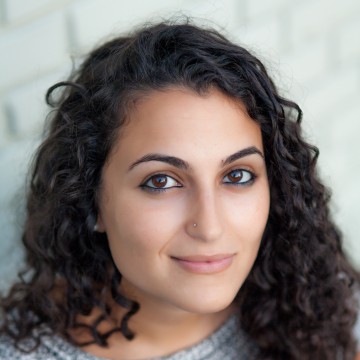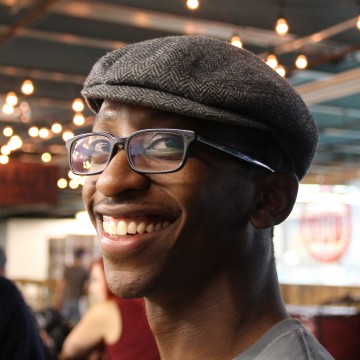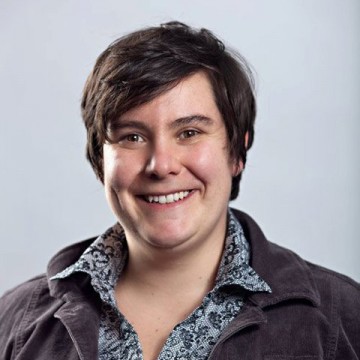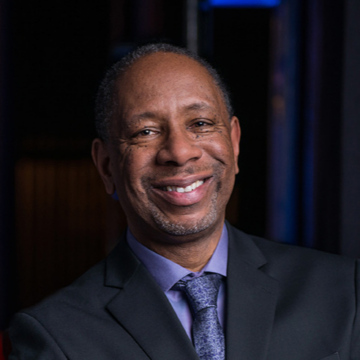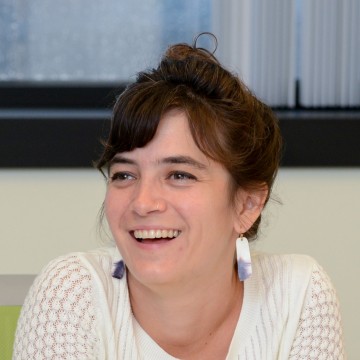Posted in Liberation
July 21, 2016
The tagline of the Black Lives Matter movement is “Free from violence. Free from oppression. Free to be our full selves. Free to love. Freedom Now.” Their rallying cry is a powerful quote from Assata Shakur. “It is our duty to fight for our freedom. It is our duty to win. We must love each other and support each other. We have nothing to lose but our chains.”
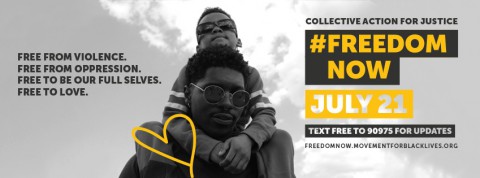
The past few weeks have reminded me that loving and supporting each other requires us not only to fight but also to mourn together. There are opportunities around us every single day. The recent shootings of police, alongside the seemingly endless list of black and brown civilians shot by police, seem to have awakened the nation in a new way. That is good, as long as we can “stay woke” long enough to do something meaningful. Still, I can’t help but wonder what hushed and gentle conversations we’d be having on television and in communities, workplaces, and houses of worship without the deaths of the police officers. Isn’t the almost daily murder of black and brown people enough to cause somber reflection? Aren’t the calls for action coming from grieving families, activists, celebrities, athletes, and everyday folks enough to make and sustain meaningful change?
Read More
July 12, 2016
This weekend I attended CommonBound 2016, the bi-annual conference of the New Economy Coalition (NEC), “…a [160-member] network of organizations imagining and building a future where people, communities, and ecosystems thrive. Together, we are creating deep change in our economy and politics—placing power in the hands of people and uprooting legacies of harm—so that a fundamentally new system can take root.”
As one might imagine given the mission, the conference was attended by people working on a wide range of projects from public engagement, participatory budgeting, and environmental sustainability to cooperatives, reparations, community land trusts, fossil fuel divestment and more. The 900 attendees were all in some way engaged in doing the very important work of organizing, shifting culture, developing alternative institutions and creative solutions, writing, resisting, and fundraising. All towards a goal of a society that is more just, more democratic, and more sustainable. NEC itself is fast becoming a network of networks engaging groups in the cooperative movement, movement for black lives, labor movement, student divestment network, environmental movement and more. Held in Buffalo, NY, the conference had all the makings of a pivotal moment in movement history, where a true intersectional approach to changing society for the better could be nurtured. The opportunities for significant connections and collaborations to develop were endless.
Read More
July 11, 2016
(Above: Video of a Boston #BlackLivesMatter protest)
In times of anger and grief and sadness, it is easy for me to retreat or to read endlessly or, worse, to tune out as if lives are not at stake.
There is much to depress us this week and, if we are awake, most weeks. I remembered this week that it is also possible to have joy during these hard times. In fact, as a colleague said to me, perhaps it is not just possible but necessary. We need to connect and celebrate because of all the craziness, not in spite of it. Perhaps it is a way of creating the world we want for ourselves and our children while in the midst of the world we need to drastically change.
Here are some moments of connectivity that brought me comfort or joy this horrible and regular US/global week:
Read More
June 20, 2016
 Tonight there will be a full moon, that time every month when the sun, moon and earth are in complete alignment. It is also the summer solstice when the sun (from the perspective of the earth) is at its highest point in the earth’s northern hemisphere marking the longest number of daylight hours in the year and the official beginning of summer.
Tonight there will be a full moon, that time every month when the sun, moon and earth are in complete alignment. It is also the summer solstice when the sun (from the perspective of the earth) is at its highest point in the earth’s northern hemisphere marking the longest number of daylight hours in the year and the official beginning of summer.
According to many this will be the first time that these two astronomical events have coincided since June of 1967, during what was in the United States, the Summer of Love for many, and a summer of continued oppression for African Americans continuing the long struggle for Civil Rights, Justice, and Equality. Yesterday many of us celebrated Juneteenth, when we commemorate the day when the last enslaved Africans in the US finally received news of their freedom.
Read More
June 16, 2016
As I walked into the office on Monday morning – pit in my stomach, swollen eyes from too much crying, exhausted from a restless night – I wondered how we would process the horror that had happened in Orlando over the weekend. I knew we would; after all, this was an organization full of facilitators whose values statement and change lens both included the word love. But having joined barely two weeks prior, I didn’t know just how it would happen.
Our colleague leading the extended meeting scheduled for that morning made it clear from the start: today wasn’t business as usual. And, it wasn’t a day off either. It was a day to be together, to mourn, to process, to do some work, and to practice “community care instead of just self care.” Read More
May 26, 2016
Tonight, Cynthia Parker will present “Race Talk” at an intercultural dialogue co-hosted by Fire, Grace Chapel’s young adult ministry. Parker explores racism through key moments of personal and professional insight.
Thursday, May 26, 2016, 7:00 PM – 9:00 PM
Grace Chapel: 59 WORTHEN RD., LEXINGTON, MA US 02421
Courtyard Room, Main Building
“There are many useful guidelines for productive race talk,” Parker says, and many practical tips are included in the talk. Yet even with best practices, some moments of race talk do harm or feel unresolved. Parker shares her personal tips for connecting with her faith, and her faith in humanity, to continue moving forward with love.
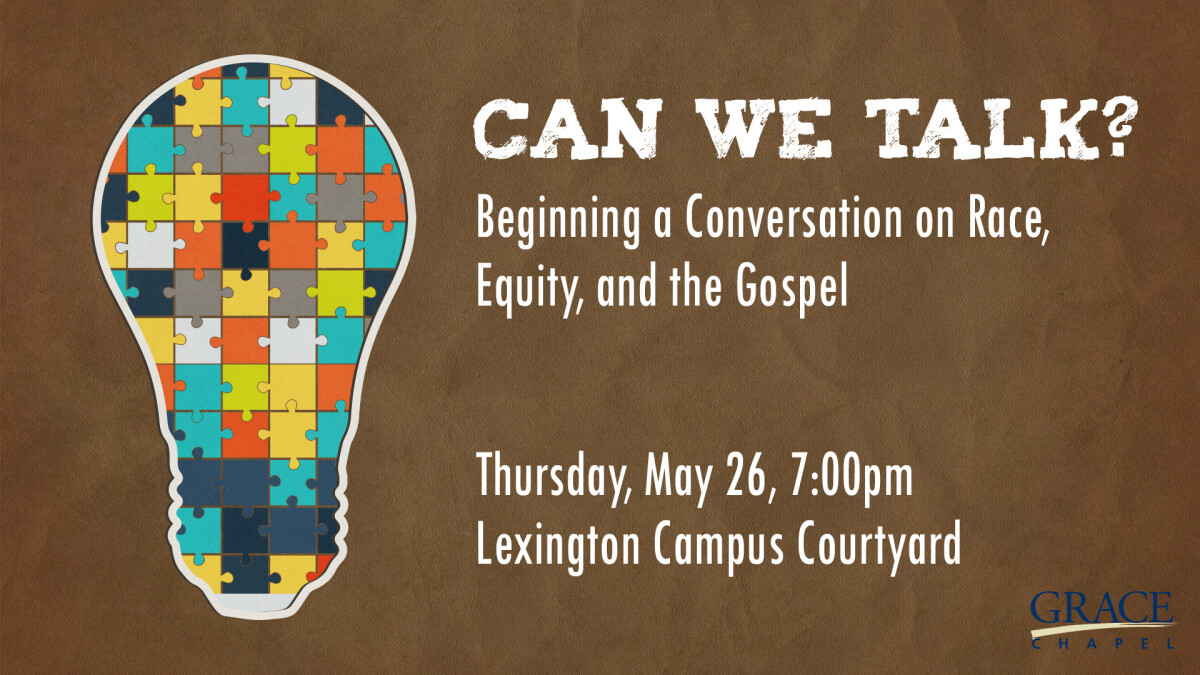
Read More
April 12, 2016
Start a Conversation
Remixers and meme-makers, we have a tool for you. We are pleased to be partnered with Center for Story-based Strategy in the release of an illustration kit: the4thbox.com
Imagery is a huge factor in framing the terms of a conversation. This kit is meant to inspire imagery that provokes new interactions between people. We believe these interactions will help open up imagination towards the liberated, equitable society we want.
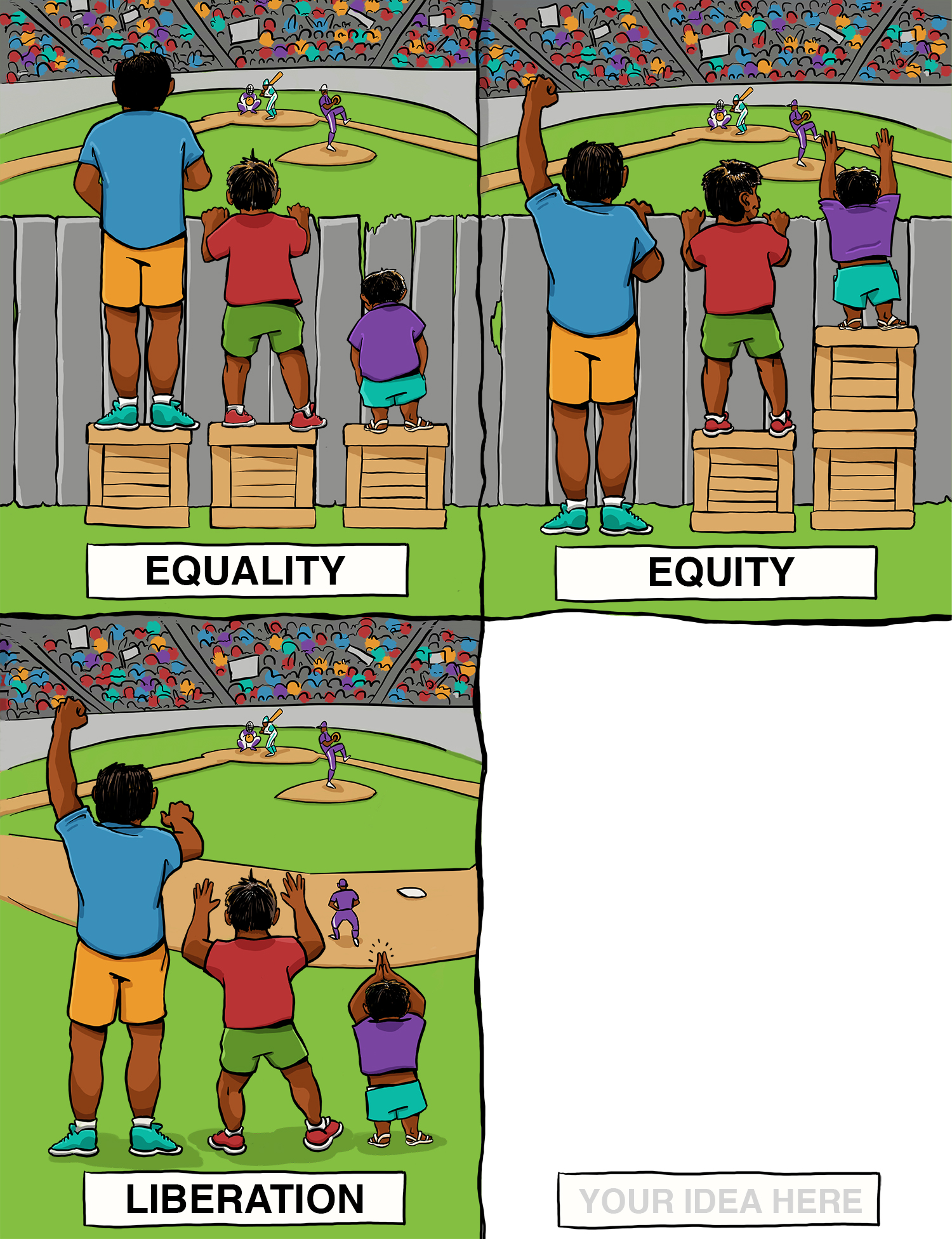
Artwork by Angus Maguire: http://beclouded.net/
Read More
February 25, 2016

Ikeda Center Podcast Episode 5: Ceasar McDowell – On the Evolving Nature of Community
Here is Part 3 of The Ikeda Center Podcast’s interview series with Ceasar McDowell.
In this final segment of our three part interview, Dr. Ceasar McDowell introduces some early experiences that have inspired his work in community development. He also discusses the evolution of how we organize ourselves as human beings in community. He comments that while in the past we were born into specific communities or chose communities that were local and familiar, now “all of that has changed.” He adds that “we often find ourselves in places where we can’t then build an integrated community, so we look at how do we then take care of that other part of ourselves, which we can say is spiritual, relational, whatever it may be…For some people, they start to do it around work, or they do it around their habits, or they do it around church…All of that still keeps us separate, because now you’re holding this multiplicity of the places where you’re finding your identity and yourself and your connection, and it ends up being fragmented in some ways.” Dr. McDowell continues by exploring this new space that we find ourselves in, one of transition and change.
February 3, 2016
Here is Part 2 of The Ikeda Center Podcast’s interview series with Ceasar McDowell.
In the second of this three part interview, Dr. Ceasar McDowell details his vision for democracy as an ongoing process of interaction and engagement. He shares that the work of democracy is “how people come to know and understand both each other, the issues that are important to them, and how they want to make meaning together.” He adds that his current work is focused on the idea of Big democracy which he describes as, “an aspiration. And at the core of this aspiration is the belief that the public is fully capable of working together to create sustainable, just, and equitable communities. But to do so the public must have ongoing, peaceful ways to interact around traditions that bind them, and interests that separate them, so they can realize a future that is an equitable improvement on the past.”
January 13, 2016
The Ikeda Center Podcast is releasing an interview series with Ceasar McDowell.
In the first of this three part interview with Dr. Ceasar McDowell, he describes the central focus of his work in the development of community knowledge systems and civic engagement. He also shares some examples of how that focus has manifested. In his words, “I can boil it down to one thing. My work, my research interests, my life, is about voice. And particularly how people—and specifically the people who are at the margins of society–are able to both name their experience in the world, have that naming be recognized, and also open themselves up to the experience of others.”
September 18, 2015
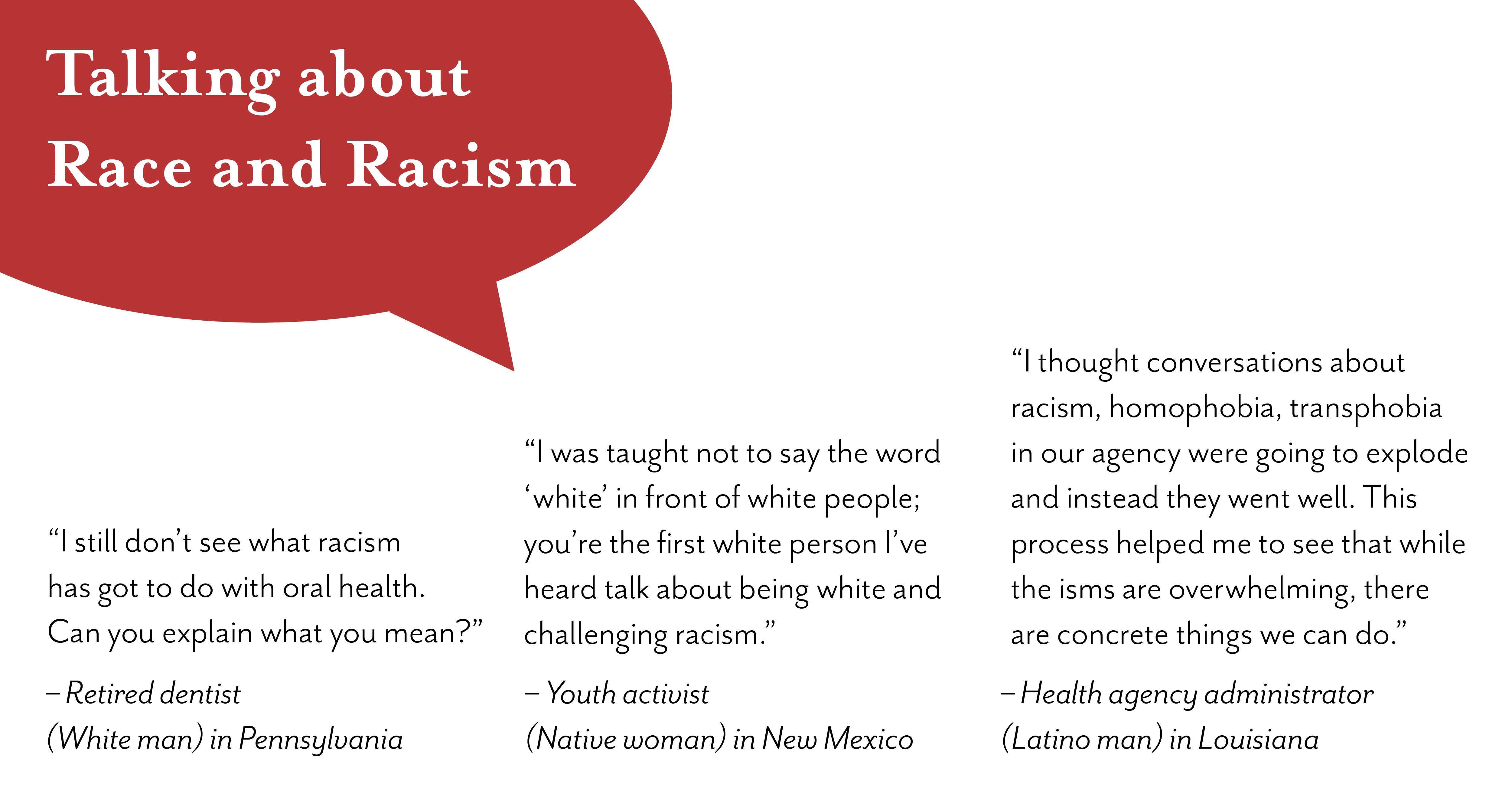
These three moments with these three individuals in recent months have stuck with me. Each of them is part of a multicultural group of folks working to integrate racial equity in their work – whether it be for youth in the juvenile justice system, for children and adults to get quality and affordable dental health care, or for people with HIV. They got me reflecting about what it takes to move racial equity work forward in multiracial, mostly white, collaboratives and institutions. And about how much I love the challenge of moving this work forward in settings where talking about race and racism is NOT the norm.
“I was taught not to say the word ‘white’ in front of white people; you’re the first white person I’ve heard talk about being white and challenging racism.”
— Youth activist (Native woman) in New Mexico
Read More
June 11, 2015
“One of the most universal numbing strategies is what I call ‘crazy-busy.'”
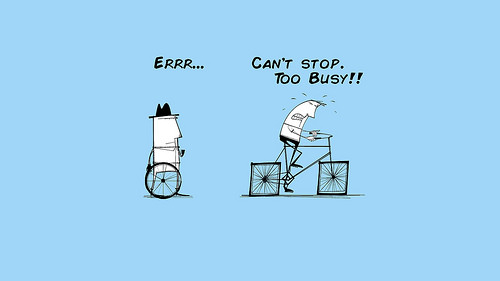
Image from Alan O’Rourke
My friend Adam Pattantyus recently reminded me of the concept of “active laziness”, attributed specifically to the writings of Sogyal Rinpoche. This reminder came at a very opportune moment. It is no secret that there is, at least in a number of circles in which we at IISC operate, a burgeoning culture of busy-ness. Many people seem increasingly pressed for time, and move between the temporal equivalent of sound bites throughout their days. The ensuing “frenzy” and exhaustion, while perhaps seen as necessary (or by some as a status symbol), is also being called out for its dysfunctional nature, including how it detracts from efforts to create positive and lasting social change. This is what Rinpoche calls “active laziness,” the compulsive cramming of our lives with activity that leaves no time to confront “real issues.” Read More
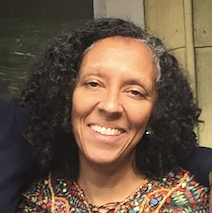

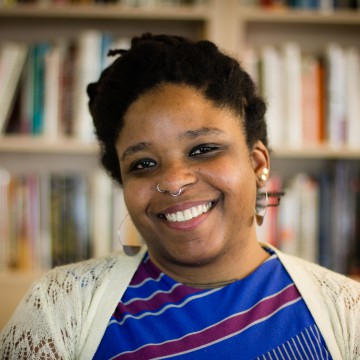
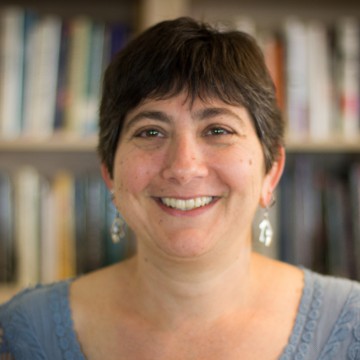
 Tonight there will be a full moon, that time every month when the sun, moon and earth are in complete alignment. It is also the summer solstice when the sun (from the perspective of the earth) is at its highest point in the earth’s northern hemisphere marking the longest number of daylight hours in the year and the official beginning of summer.
Tonight there will be a full moon, that time every month when the sun, moon and earth are in complete alignment. It is also the summer solstice when the sun (from the perspective of the earth) is at its highest point in the earth’s northern hemisphere marking the longest number of daylight hours in the year and the official beginning of summer.